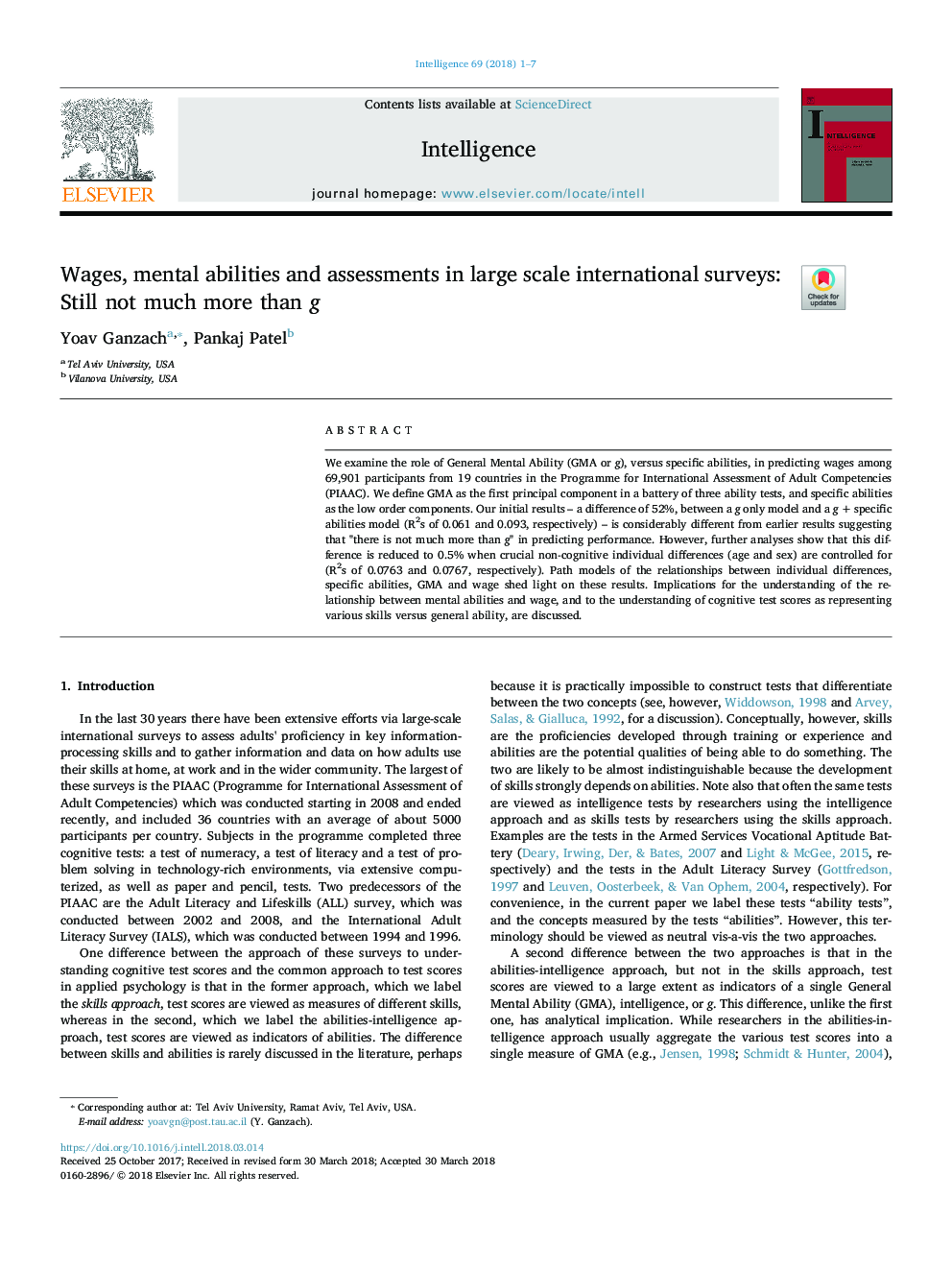| Article ID | Journal | Published Year | Pages | File Type |
|---|---|---|---|---|
| 7292677 | Intelligence | 2018 | 7 Pages |
Abstract
We examine the role of General Mental Ability (GMA or g), versus specific abilities, in predicting wages among 69,901 participants from 19 countries in the Programme for International Assessment of Adult Competencies (PIAAC). We define GMA as the first principal component in a battery of three ability tests, and specific abilities as the low order components. Our initial results - a difference of 52%, between a g only model and a gâ¯+â¯specific abilities model (R2s of 0.061 and 0.093, respectively) - is considerably different from earlier results suggesting that "there is not much more than g" in predicting performance. However, further analyses show that this difference is reduced to 0.5% when crucial non-cognitive individual differences (age and sex) are controlled for (R2s of 0.0763 and 0.0767, respectively). Path models of the relationships between individual differences, specific abilities, GMA and wage shed light on these results. Implications for the understanding of the relationship between mental abilities and wage, and to the understanding of cognitive test scores as representing various skills versus general ability, are discussed.
Related Topics
Social Sciences and Humanities
Psychology
Experimental and Cognitive Psychology
Authors
Yoav Ganzach, Pankaj C. Patel,
